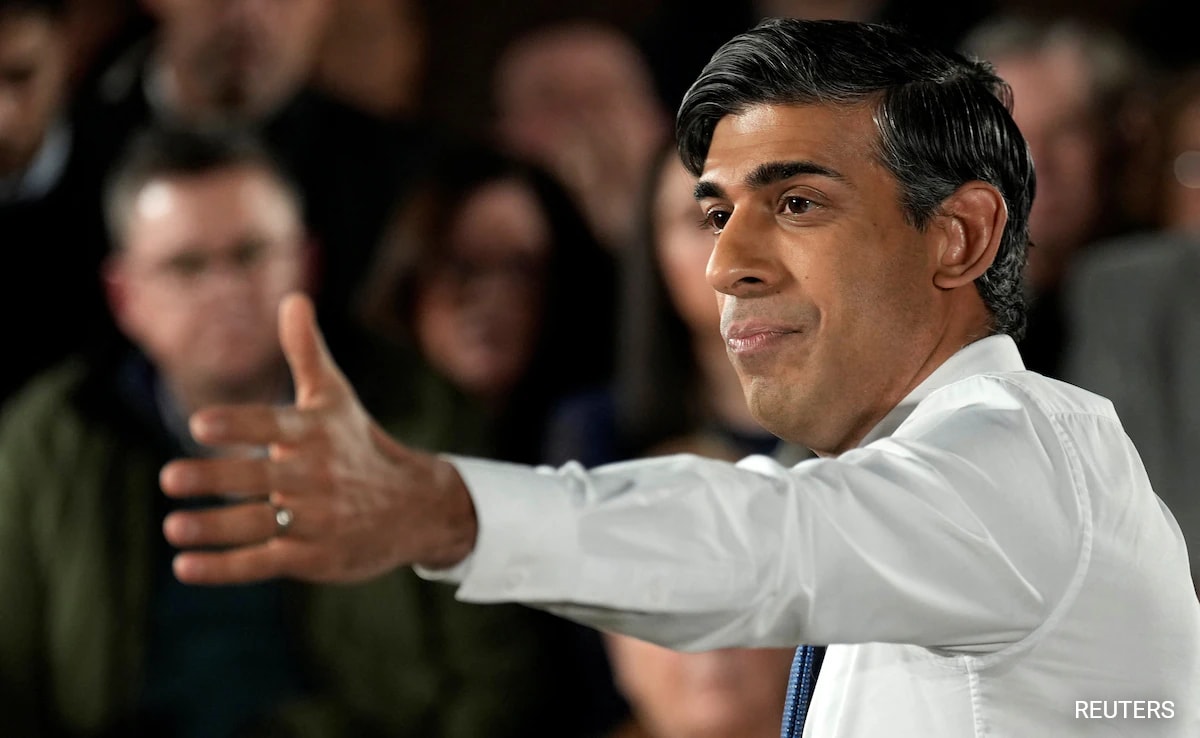After holding power in the UK Parliament for nearly 15 years, the Rishi Sunak-led Conservative Party expects a massive defeat against the Labour Party in the upcoming elections. It reflects the public’s growing dissatisfaction with the UK’s worsening condition – repeated policy failures, unfulfilled promises, and rising cost of living. As the country battles recession, Prime Minister Rishi Sunak risks losing his seat.
A recent public survey conducted by YouGov, interviewing 18,761 British adults between March 7-27, indicates a landslide victory for the Labour Party. To win a majority in the UK Parliament, parties have to secure 326 out of 650 seats. Labour is projected to secure 403 seats nationwide. In contrast, Conservatives are only predicted to win 155 seats. This puts them at 169 seats lower than the previous YouGov MRP released in January 2024. YouGov claims, “The coming tidal wave projected by this model would sweep away several major Conservative figures.”
Poll of Polls in Politico highlights similar trends, with 44% of people intending to vote for Labour while Conservatives tail behind at 23%, as of March 31.
Mr Sunak’s campaign outlines the Conservative Party’s goals – to halve inflation, reduce national debt, improve the National Health Service (NHS), stop illegal migrants, and better the economy. Various measures like hikes in immigration costs and stricter refugee deportation laws have been tried, but have proven unsuccessful. He also announced tax cuts in March.
Despite this, Conservatives are expecting defeat in the local council and mayoral polls to be held on May 2. Rising disapproval of his leadership among party MPs may lead to Mr Sunak facing a confidence vote soon, with 53 MP signatures needed to oust him on grounds of no-confidence. Mr Sunak is an unelected Prime Minister, assuming the role after ex-PM Liz Truss’ 6-week tenure ended in her resignation. This adds to the sharp decline in his popularity and lack of trust in his capabilities as Prime Minister.
Meanwhile, Leader of Labour Party Keir Starmer has pledged that the opposition plans to lower national strain by increasing spending on sectors like housing, transport, and infrastructure, to reduce inflation and stabilise the economy. This stands as an implicit critique of the Conservatives who have failed to tackle these issues.
The Labour Party has also called on Mr Sunak to set a date for the UK General Elections, which remains undecided. On March 15, Labour activists staged a demonstration at Westminster, dressed as chickens and holding signs reading “Rishi, name the date now!”, to mock the Prime Minister for his failure to do so yet. The Fixed-term Parliaments Act in 2022 restored British prime ministers’ ability to set election dates. However, General Elections have to be held every 5 years, so Mr Sunak has to set a date by January 2025.
As public disillusionment with the government culminates and polls indicate a decisive loss for the Conservatives, it is highly unlikely that Mr Sunak will retain his seat as the Prime Minister for another term.














